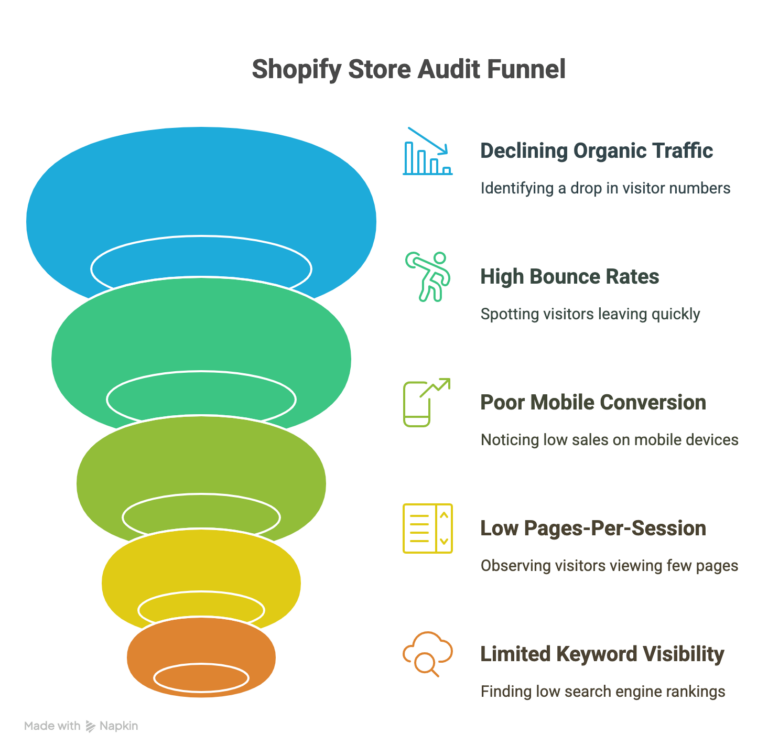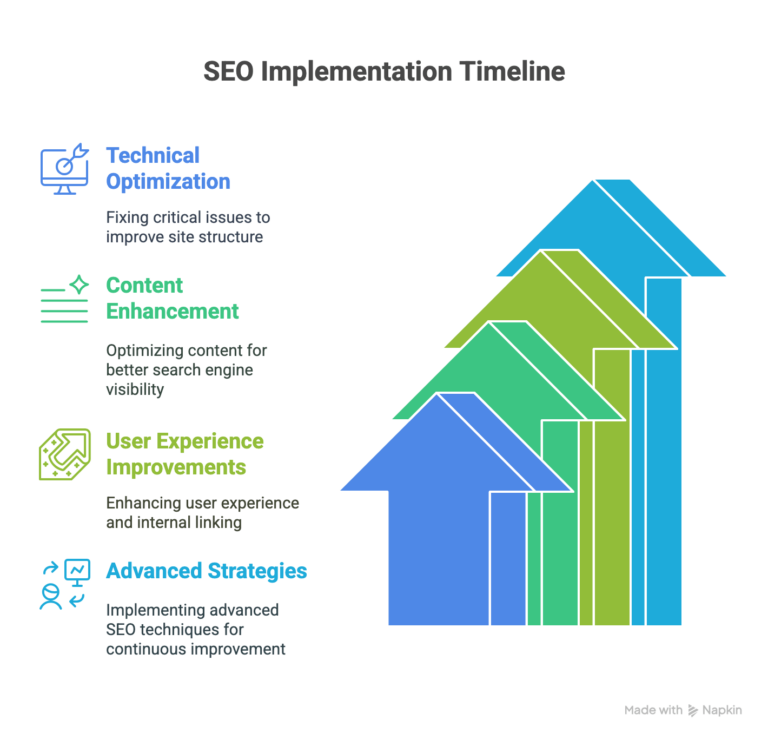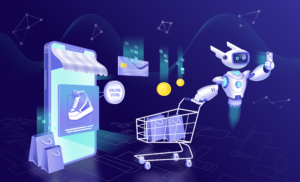Greetings! I'm Aneesh Sreedharan, CEO of 2Hats Logic Solutions. At 2Hats Logic Solutions, we are dedicated to providing technical expertise and resolving your concerns in the world of technology. Our blog page serves as a resource where we share insights and experiences, offering valuable perspectives on your queries.
Quick Summary
This guide breaks down the most effective Shopify SEO apps of 2025, comparing their features, pricing, and real results. We cover technical SEO tools, content optimization apps, keyword research solutions, and analytics platforms that deliver ROI. Based on our experience optimizing over 50+ Shopify stores, these apps can increase organic traffic when properly implemented as part of a comprehensive SEO strategy.
Most Shopify SEO advice is fundamentally flawed.
At 2HatsLogic, we’ve discovered that optimizing within Shopify’s native capabilities only gets merchants so far. The real breakthrough comes from implementing specialized apps that overcome the platform’s inherent limitations.
After testing every major SEO app with our clients, we’ve identified which ones actually deliver meaningful traffic increases in 2025’s algorithm environment.
Understanding Your Current SEO Performance
Before diving into specific apps, you need to know where your store stands.
Many merchants we work with think their SEO is “pretty good” until we run an actual audit. That’s when the truth comes out, and it’s often not pretty.
Quick Audit Checklist for Shopify Stores
Start by asking yourself these questions:
- Does your store load in under 2 seconds on mobile devices?
- Are your product pages optimized with unique titles and descriptions?
- Is your site structure allowing Google to easily crawl and index all your products?
- Do you have proper schema markup for your products?
- Is your content answering your customers’ questions?
If you answered “no” or “I’m not sure” to any of these, you’ve got some work to do.
Key Metrics That Indicate SEO Problems
Here are the warning signs we look for when auditing a Shopify store:

- Declining organic traffic (month-over-month)
- High bounce rates on product pages (over 65%)
- Poor mobile conversion rates compared to desktop
- Low pages-per-session for organic traffic
- Limited keyword visibility for product-related terms
Common Shopify-Specific SEO Challenges in 2025
Shopify is an amazing platform, but it comes with unique SEO challenges:
- Duplicate content issues from collections and tags
- Difficult URL structure customization
- Limited control over robots.txt and sitemap.xml
- Page speed limitations with some themes
- The default structured data that needs enhancement
Warning: Don’t assume Shopify’s default settings are optimized for SEO. Even the best themes need customization to truly perform well in search.
Top Shopify SEO Apps for Technical Optimization
Technical SEO is the foundation of your organic traffic strategy. If your store has technical issues, even the best content won’t save you.
Speed Optimization Apps
| App | Key Features | Best For | Price | Our Rating |
| Booster: Page Speed Optimizer | Image compression, lazy loading, CSS/JS optimization | Mid-size stores | $29.99/month | 4.5/5 |
| Swift | Server-side rendering, predictive preloading | High-traffic stores | $49/month | 4.8/5 |
| PageFly Advanced Page Builder | Code minification, AMP support | Content-heavy stores | $19-$99/month | 4.2/5 |
Structured Data Implementation Tools
Structured data (schema markup) helps search engines understand what’s on your pages and can lead to rich snippets in search results.
Top apps for Shopify schema implementation:
- Schema Plus – Automatically adds product, review, and FAQ schema
- JSON-LD for SEO – Most comprehensive schema options for Shopify
- Rich Snippets SEO – Visual schema builder with preview feature
Based on our testing, JSON-LD for SEO consistently outperforms the competition for product markup accuracy.
Mobile SEO Enhancement Apps
With Google’s mobile-first indexing, optimizing for mobile is non-negotiable.
We recommend:
- Mobile Optimizer Pro – Fixes common mobile usability issues
- AMP by Shop Sheriff – Creates Accelerated Mobile Pages versions of your content
- Mobile-First Indexing Booster – Specifically designed to address Google’s mobile-first approach
Pro Tip: Install the Mobile Optimizer Pro app first, fix the issues it identifies, then consider AMP for your blog content, but not necessarily for product pages where conversion elements are critical.
Content Optimization Apps That Drive Qualified Traffic
Technical SEO gets you in the game, but content is how you win.
AI-Powered Content Suggestion Tools
These apps analyze what’s ranking and help you create content that actually matches search intent:
- SEO Content Optimizer – Analyzes top-ranking content and provides real-time optimization suggestions
- MarketMuse for Shopify – Enterprise-level content intelligence platform
- Frase AI Writer – Creates SEO-optimized content based on what’s ranking
We’ve seen the most consistent results with SEO Content Optimizer, which helped one of our home goods clients increase their average time on page.
Apps That Optimize Product Descriptions at Scale
When you have hundreds or thousands of products, manually optimizing each description becomes impossible:
- Bulk Product Editor – Edit SEO fields for multiple products at once
- SEO Manager – AI-powered product description generator with optimization built in
- Smart SEO – Automatically generates meta information for products and collections
We often tell clients: “You can have 100 perfectly optimized products or 1,000 adequately optimized ones; the latter will usually drive more overall traffic.”
Image Optimization and Alt-Text Automation
Images are crucial for e-commerce SEO, but they’re often overlooked:
- TinyIMG SEO Image Optimizer – Compresses images without quality loss and adds auto alt texts
- SEO Image Optimizer Pro – Bulk optimizes images and includes structured data for images
- Crush.pics – Focuses purely on image compression for maximum speed
One of our clients saved over 5GB of storage and improved their Core Web Vitals scores dramatically after implementing TinyIMG.
Best Apps for Competitive Keyword Research
Knowing what keywords to target can make or break your SEO strategy.
Shopify-Specific Keyword Tools vs. General SEO Platforms
While general tools like Ahrefs and SEMrush are excellent, these Shopify-specific apps integrate directly with your store:
- SEO Booster – Includes a keyword research tool with Shopify-specific metrics
- Benchmark Hero – Compares your keyword rankings against direct competitors
- Keywords Manager – Finds keywords specifically from Shopify search analytics
The advantage of Shopify-specific tools is that they understand the platform’s unique structure and can recommend changes that work within Shopify’s constraints.
Apps That Identify Purchase-Intent Keywords
Not all keywords are created equal. These apps help you find the ones that actually drive sales:
- SEOMetriks – Uses AI to identify high-conversion keywords from your store data
- Keyword Scout – Focuses on commercial intent keywords for product pages
- Sales Boosting Keywords – Analyzes your existing orders to find keywords that led to purchases
Hot Tip: Focus on long-tail, specific keywords that show clear purchase intent. “Black leather women’s motorcycle jacket size 10” will convert far better than “leather jackets” – and it’s usually easier to rank for!
After every 2-3 new keyword sets, test them on a small product category first before rolling out store-wide changes.
Apps That Improve User Experience & Reduce Bounce Rates
In 2025, user experience signals will be more important for SEO than ever.
Site Search Optimization Tools
A poorly performing search function can kill your SEO efforts by leading to high bounce rates:
- Searchanise – Advanced search with autocomplete and search analytics
- Algolia Search – Enterprise-level search with AI-powered relevance
- Smart Search & Instant Search – Budget-friendly option with solid features
We’ve found that implementing Searchanise typically reduces bounce rates by 15-25% and increases pages per session by 30-40%.
Navigation and Breadcrumb Enhancement Apps
Helping users (and search engines) understand your site structure is crucial:
- Breadcrumb NavXT – Creates SEO-friendly breadcrumbs with schema
- Easy Mega Menu & Navigation – Builds search-engine friendly navigation
- Smart Navigation & Filters – Helps users find products while creating SEO-friendly category pages
Internal Linking Automation
Internal links distribute link equity throughout your site and help search engines discover your content:
- Link Whisper for Shopify – AI-powered internal linking suggestions
- Internal Link Juicer – Automatically adds relevant internal links
- Smart Internal Links – Creates a strategic internal linking structure
Our client testing shows that proper internal linking can boost rankings for target pages by an average of 14 positions.
Checklist: Signs Your Store Needs UX Improvements
- Bounce rate above 65%
- Average session duration under 2 minutes
- Less than 3 pages per session
- Mobile conversion rate is 50% lower than desktop
- High exit rate on product pages
Struggling with technical SEO issues?
Local SEO Apps for Multi-Location Retailers
For brands with Local SEO Apps for Multi-Location Retailers, physical locations, local SEO is essential to drive foot traffic.
Geo-Targeting Optimization Tools
These apps help customers find your nearest location:
- Store Locator Plus – Advanced store locator with SEO features
- Storemapper – Location finder with local SEO optimization
- Local SEO Optimizer – Creates location-specific landing pages
Local Inventory Apps That Boost Local Search
Connecting your online inventory with local search is a game-changer:
- Local Inventory Feed – Syncs your in-store inventory with Google local inventory ads
- Near Me Now – Shows local inventory availability in search results
- Shop Local – Creates SEO-optimized pages for each location’s inventory
Review Management Systems
Reviews impact both conversion rates and local SEO:
- Yotpo Reviews – Collects and displays reviews with schema markup
- Judge.me – Budget-friendly review solution with rich snippets
- Stamped.io – Review platform with Q&A and photo reviews
Pro Tip: Configure your review apps to send automated follow-up emails 7 days after delivery. This timing typically results in 3x more reviews than immediate post-purchase requests.
Analytics & ROI Tracking Apps
If you can’t measure it, you can’t improve it.
Beyond Google Analytics: Shopify-Specific Analytics
These apps provide insights specifically for Shopify SEO:
- Littledata – Fixes Shopify’s Google Analytics integration issues
- True Analytics Pro – Shopify-specific metrics and benchmarks
- SEO Doctor – Monitors your SEO health with Shopify-specific metrics
Conversion Tracking for SEO Efforts
Knowing which keywords and pages drive revenue is crucial:
- Conversions Plus – Tracks the entire customer journey from keyword to purchase
- ROI Hunter Easy – Attributes revenue to specific content and keywords
- Enhanced E-commerce Analytics – Gives product-level conversion insights
Attribution Modeling for E-commerce
Understanding how SEO fits into your overall marketing mix:
- Attribution App – Multi-touch attribution for Shopify
- Segments Analytics – Customer journey analysis with attribution modeling
- Elevar – Advanced attribution with data validation
One luxury client discovered through proper attribution that their organic traffic was actually responsible for 42% more revenue than they thought, because many customers researched organically before clicking on ads.
Warning: Don’t rely solely on last-click attribution for measuring SEO success. On average, customers interact with your store 3-7 times before purchasing, and organic search often initiates this journey.
Implementation Guide & Integration Strategy
Installing a dozen SEO apps without a strategy is a recipe for disaster.
How to Choose the Right Combination of Apps
Follow this framework to build your perfect SEO app stack:
- Start with technical foundations (speed, structured data)
- Add content optimization tools
- Implement analytics to measure impact
- Add specialized tools for specific needs (local SEO, etc.)
Avoiding App Conflicts and Site Slowdowns
More isn’t always better when it comes to apps:
- Test speed after each new app installation
- Remove any redundant functionality
- Prioritize native features over app solutions when possible
- Consider having a developer create a custom app that combines multiple functions
Implementation Timeline and Expected Results

Be patient – SEO is a marathon, not a sprint:
Months 1-2: Technical optimization, fixing critical issues.
Months 3-4: Content enhancement and optimization.
Months 5-6: User experience improvements and internal linking.
Month 7+: Advanced strategies and continuous improvement
Most of our clients see the first significant traffic increases around month 3-4, with major growth typically occurring in months 6-8.
Building Your Custom Shopify SEO Tech Stack
There’s no one-size-fits-all solution for Shopify SEO. The perfect app combination depends on your specific store, products, and challenges.
Decision Framework for Selecting the Right Apps
Ask yourself these questions:
- What are my biggest SEO pain points right now?
- Which metrics am I trying to improve most urgently?
- What’s my monthly budget for SEO apps?
- Do I need specialized features (local SEO, multi-language, etc.)?
- How much technical expertise do I have in-house?
Need help implementing these apps correctly?
Budget Considerations for Different Store Sizes
Starter Package ($50-100/month):
- Page speed optimizer
- Basic technical SEO app
- Content optimization tool
Growth Package ($100-250/month):
- All starter apps
- Advanced keyword research
- UX enhancement tools
- Basic analytics
Enterprise Package ($250-500+/month):
- Comprehensive app stack
- Custom development
- Advanced analytics and attribution
When to Consider Custom Development vs. Off-the-Shelf Apps
Custom development makes sense when:
- You have specific needs not covered by existing apps
- You’re experiencing app conflicts or performance issues
- Your monthly app costs exceed $500
- You need deep integration with other business systems
Remember: the most expensive approach is often paying for underperforming apps month after month while your competitors outrank you.
Book a free 30-minute Shopify SEO consultation to discover how we can boost your organic traffic in 2025.
FAQ
How many SEO apps does a typical Shopify store need?
Most successful stores use 4-7 specialized apps rather than dozens of overlapping ones. Focus on quality over quantity.
Will these apps work with my theme?
Most reputable SEO apps work with all Shopify themes, but always check compatibility before purchasing. Dawn, Debut, and Brooklyn themes typically have the best compatibility.
Can SEO apps slow down my store?
Yes, poorly coded apps can impact performance. That's why we recommend starting with speed optimization apps and testing performance after each new installation.
How long before I see results from these apps?
Technical improvements can show results in 2-4 weeks, while content optimization typically takes 2-3 months to significantly impact rankings. Be patient and consistent.
Table of contents
- Understanding Your Current SEO Performance
- Top Shopify SEO Apps for Technical Optimization
- Content Optimization Apps That Drive Qualified Traffic
- Best Apps for Competitive Keyword Research
- Apps That Improve User Experience & Reduce Bounce Rates
- Local SEO Apps for Multi-Location Retailers
- Analytics & ROI Tracking Apps
- Implementation Guide & Integration Strategy
- Building Your Custom Shopify SEO Tech Stack

Related Articles








